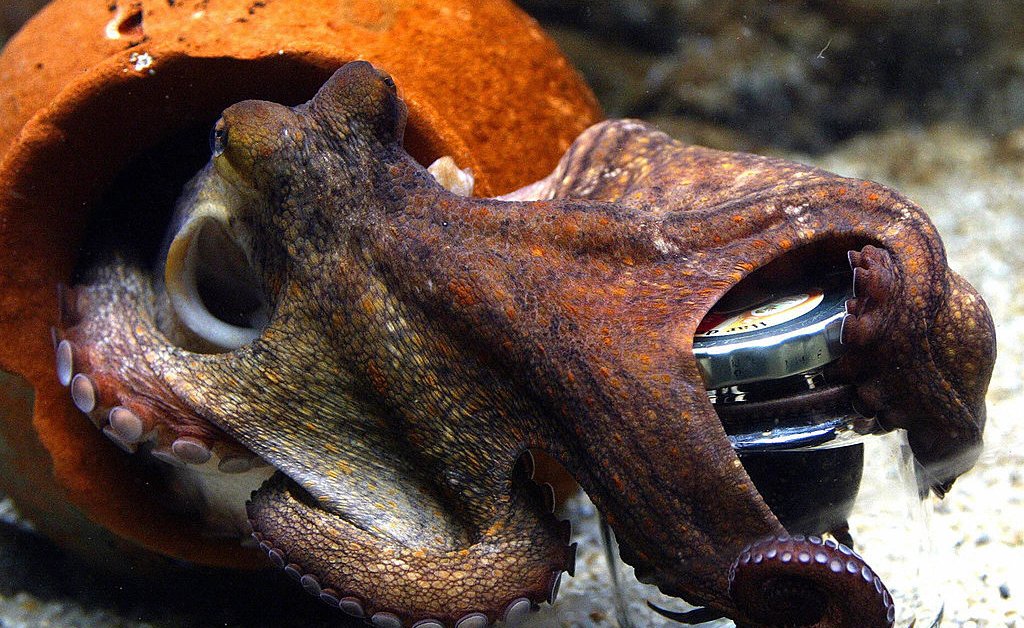As expected as the swallows returning to Capistrano, recent advancements in AI have sparked renewed concerns about a potential technological “singularity,” where computers surpass human control. While some fear that AI may marginalize humanity, a closer examination of the natural world offers valuable insights into the current capabilities and limitations of AI. Take, for instance, the crab. These resilient creatures exhibit a remarkable array of evolutionary adaptations, from versatile designs to sophisticated weaponry and adaptive camouflage. Their ability to discern and apply suitable strategies based on situational demands remains unparalleled in the realm of robotics, which has yet to replicate such a diverse skill set despite years of research. The complexity of consciousness extends beyond mere access to vast databases—it encompasses decision-making processes and adaptive responses essential for survival.
Donald Griffin, a pioneer in animal cognition research, proposed a compelling perspective on pet consciousness, suggesting that a broad spectrum of species likely possess varying degrees of awareness to navigate the challenges of their environments efficiently. While Griffin’s viewpoint underscores the evolutionary advantages of decision-making abilities across species, the ongoing debate on animal consciousness highlights the intricate nature of cognitive processes. This nuanced understanding sheds light on the inherent limitations of AI, emphasizing the impracticality of rigidly preset responses in dynamic and unpredictable scenarios.
Moreover, Griffin’s framework prompts a critical question: how does adaptive behavior in response to environmental stimuli contribute to the development of consciousness? The remarkable octopus offers a compelling illustration of this concept. Over millions of years, these cephalopods have honed their survival strategies, evolving sophisticated sensory mechanisms, agile tentacles, and intricate camouflage techniques. The selective pressures driving these adaptations have not only shaped the octopus’s physical attributes but also fostered advanced decision-making capabilities, reflected in their intricate neural architecture. The concept of “ecologically surplus ability” further elucidates how the refinement of specific traits may inadvertently enhance cognitive functions beyond immediate survival needs.
While nature’s evolutionary processes have paved the way for consciousness to emerge from practical adaptations in living organisms, the current trajectory of AI development diverges significantly. Unlike the organic evolution of consciousness in response to environmental challenges, contemporary AI predominantly relies on predetermined algorithms and machine learning models trained on extensive datasets. This data-driven approach, exemplified by systems like ChatGPT, excels in generating responses based on probabilistic analysis but lacks the adaptability and contextual understanding inherent in biological decision-making.
The contrasting paths of AI and biological evolution underscore a fundamental divergence in achieving sentient intelligence. While early AI research sought to emulate human-like problem-solving through contextual understanding, modern AI frameworks prioritize data-driven learning models that, while powerful, remain constrained by their training data. This inherent “brittleness” limits AI systems to predefined responses, akin to advanced predictive text applications, rather than genuine cognitive reasoning.
Reflecting on the evolution of AI over the past decades, it is evident that while contemporary applications have revolutionized various industries, they fall short of achieving true sentience or common sense reasoning. The quest for AI that transcends rigid programming and comprehends complex contexts remains an ongoing challenge, distinct from the organic emergence of consciousness in biological organisms. As society grapples with the ethical and practical implications of widespread AI integration, the focus shifts towards addressing real-world challenges and ensuring responsible AI deployment, rather than speculating on the hypothetical scenarios of machine sentience. The evolution of AI continues to shape our technological landscape, offering immense potential alongside critical considerations for its ethical and societal ramifications.










